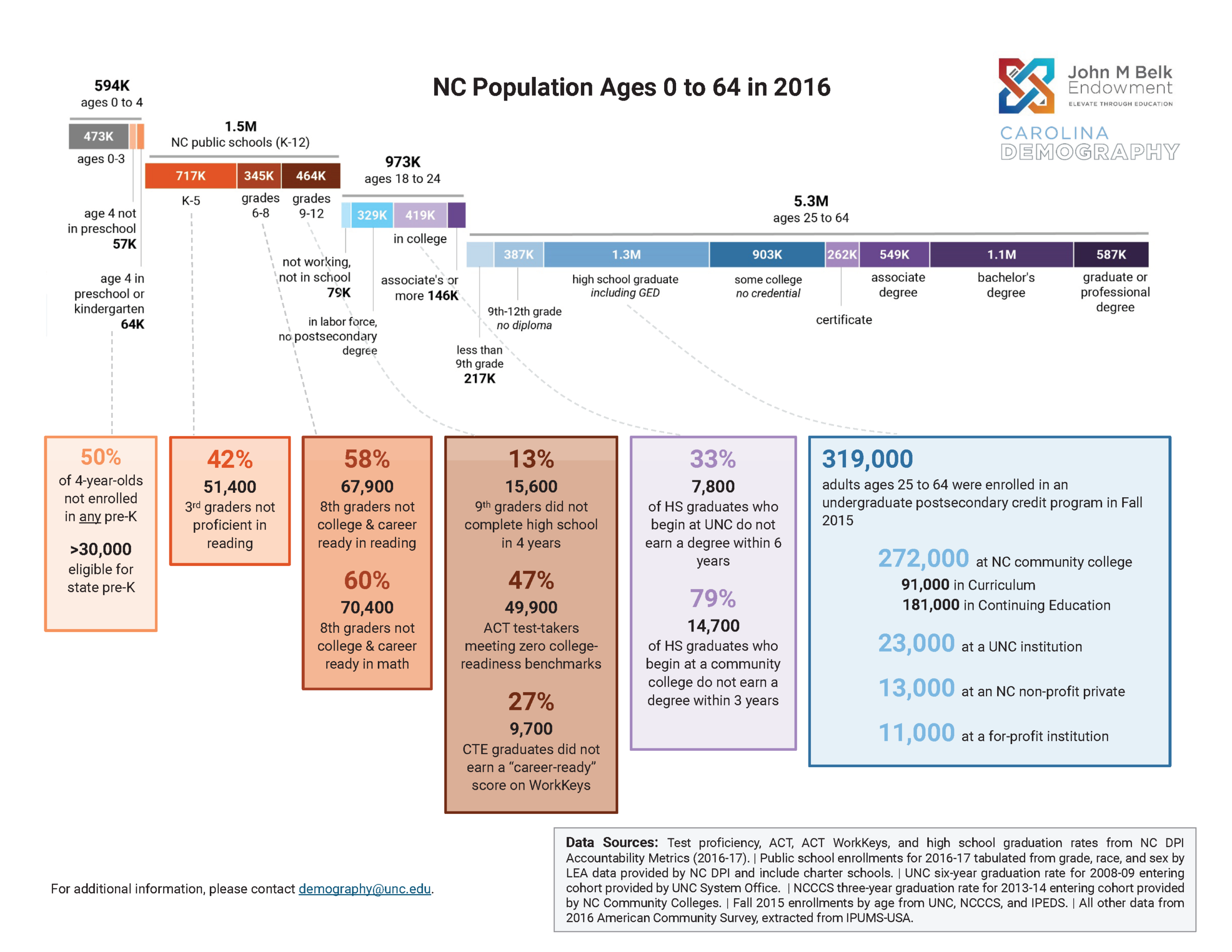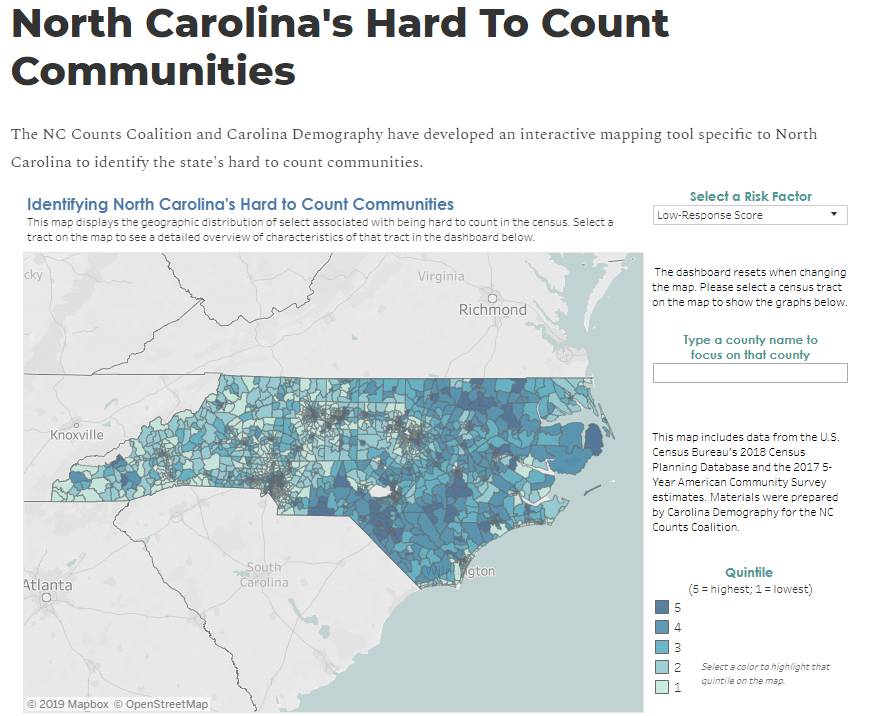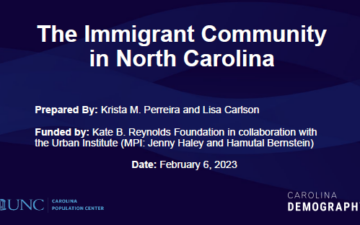Carolina Demography: Our 2019 Year in Review

Over the past year, we’ve worked with leaders across North Carolina, presented to dozens of organizations, and answered 150+ questions from journalists and residents with one focus: providing accurate and specific information for people to make sense of population-level changes. Below, you’ll see just a small part of the work we’ve done this year: highlights from what we researched, learned, and shared.
Thank you for your ongoing support. We wish you a Happy New Year and look forward to working with you and sharing more insights about population changes in 2020.

In collaboration with the John M. Belk Endowment, we mapped out North Carolina’s public postsecondary education pipeline and identified our biggest opportunities for improvement.
Next steps: Creating an interactive dashboard to allow leaders to examine the data in greater detail
To help North Carolina achieve a complete and accurate census count, we worked with the NC Counts Coalition to create a map that identifies communities across the state that are most at-risk of being undercounted in the 2020 Census.

We published weekly blog posts going in depth on population changes in North Carolina. In the past year, we’ve examined:
When The Chamber for a Greater Chapel Hill-Carrboro first approached us three years ago, they wanted to ensure that they were identifying and accessing the appropriate data sources for the metrics they needed to track over time. We worked closely with Chamber leaders to identify and combine the appropriate data sources to paint a more comprehensive demographic picture of the region. We then ensured that they were displaying that information in a way that best represented the underlying data.
This databook, which we now maintain and update on an annual basis, is used by Chamber staff, as well as county, city, and town stakeholders to ensure that all community leaders in the Greater Chapel Hill area are drawing from the same pool of information when making strategic decisions about their community.
We continue to work with chambers of commerce across the state to provide demographic profiles and insights that can help local community leaders plan and make decisions.
When Carolina Demography began in 2013, I was a “team” of one. Working closely with leadership at the Carolina Population Center, I began meeting with local and state government officials, businesses, non-for-profit organizations, and people across the state to understand what questions they had about our rapidly changing population.
In the past two years, Carolina Demography has grown into a true team (no air quotes needed). Carolina Demography now includes evaluators, spatial analysts, coders, designers, and storytellers in addition to this demographer. Collectively, we have decades of experience analyzing population-level and economic trends and communicating that data back out into the world in a way that’s easy to understand and act upon.
I am proud of the work Carolina Demography has done with organizations and people in all 100 counties across the state and look forward to continuing this work in 2020.
– Rebecca Tippett
Need help understanding population change and its impacts on your community or business? Carolina Demography offers demographic research tailored to your needs.
Contact us today for a free initial consultation.
Contact UsCategories: Carolina Demographics, NC in Focus

The Center for Women’s Health Research (CWHR) at the University of North Carolina School of Medicine released the 12th edition of our North Carolina Women’s Health Report Card on May 9, 2022. This document is a progress report on the…

Dr. Krista Perreira is a health economist who studies disparities in health, education, and economic well-being. In collaboration with the Urban Institute, she recently co-led a study funded by the Kate B. Reynolds Foundation to study barriers to access to…

Our material helped the NC Local News Lab Fund better understand and then prioritize their funding to better serve existing and future grant recipients in North Carolina. The North Carolina Local News Lab Fund was established in 2017 to strengthen…
Your support is critical to our mission of measuring, understanding, and predicting population change and its impact. Donate to Carolina Demography today.